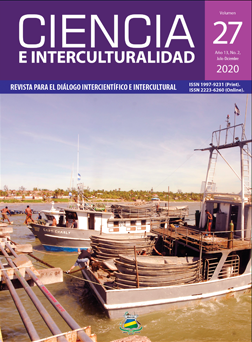Curriculum and social justice: An approach from interculturality
DOI:
https://doi.org/10.5377/rci.v27i02.10427Keywords:
Bilingual Intercultural Education, Ethno-education, Interculturality, Social JusticeAbstract
Interculturality in Ecuador in recent years has generated belligerence and a broad debate at a discursive and practical level around this polysemic concept. In this context, a series of guidelines and legal documents - Development Plan, Organic Law of Intercultural Education, and Ministerial Agreements - allow the incorporation of interculturality into the country's educational system. Thus, it is visible in the curricula of Intercultural Bilingual Education and ethno – education. Proposals drawn in terms of cognitive and social justice from a qualitative hermeneutical methodology when analyzing documents and texts. This essay reflects on the contribution of interculturality to the construction of societies with social justice and as a principle of the whole society, thus the relevance of the contents that allow us to assess knowledge of the different cognitive, historical, cultural and linguistic manifestations of the country. Hence, the need to understand curricula from the Philosophy of Liberation and the decolonization of knowledge emerges.
Downloads
975
HTML (Español (España)) 188
EPUB (Español (España)) 164
XML (Español (España)) 172
Resumen (Audio) (Español (España)) 160
Abstract (Audio) 168
Downloads
Published
How to Cite
Issue
Section
License
Copyright © (URACCAN)

This journal is licensed under a Creative Commons Attribution-NonCommercial-NoDerivatives 4.0 International License.
This license allows others to download the works and share them with others, as long as their authorship is acknowledged, but they can not be changed in any way nor can they be used commercially.




